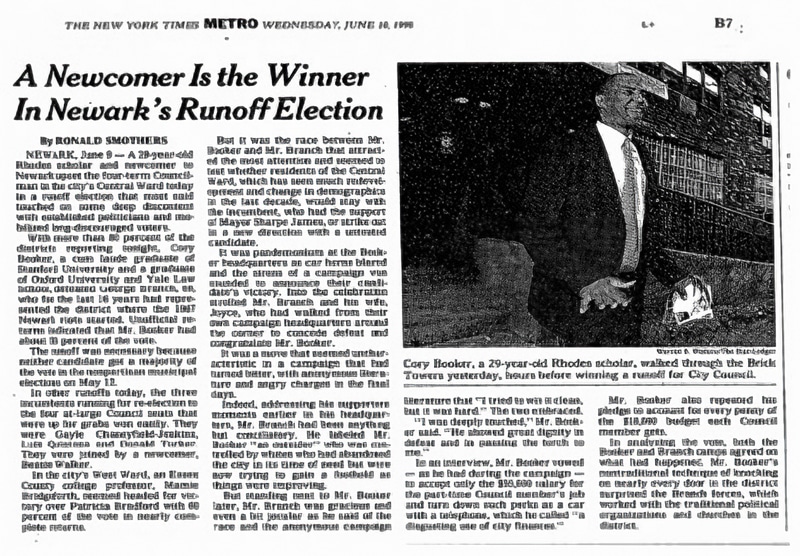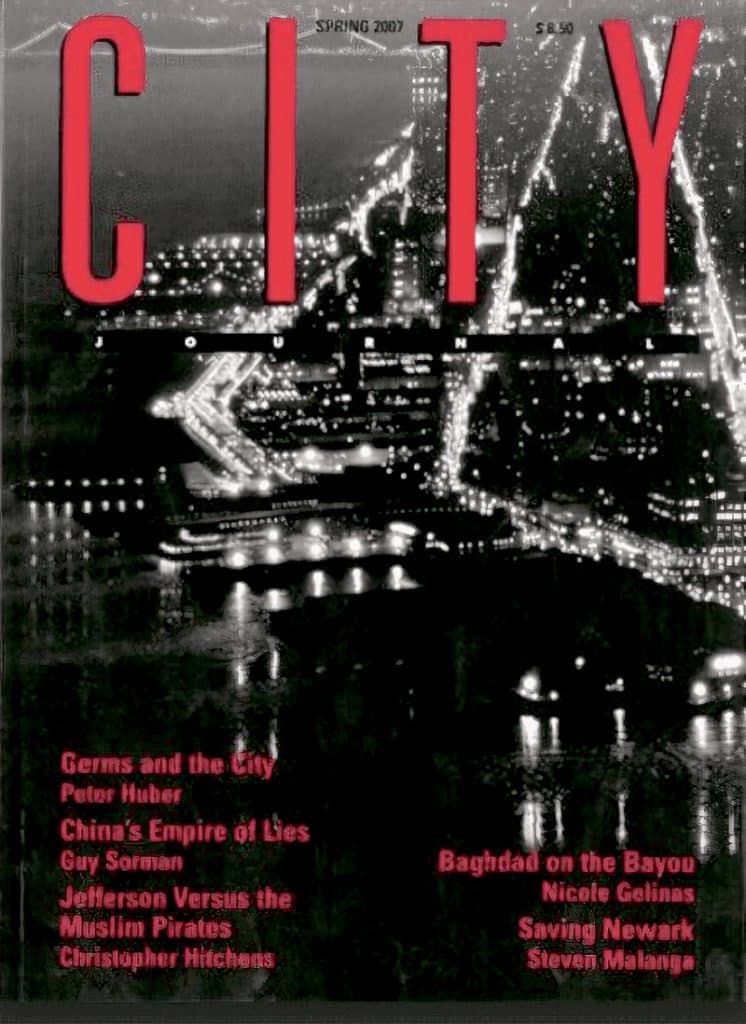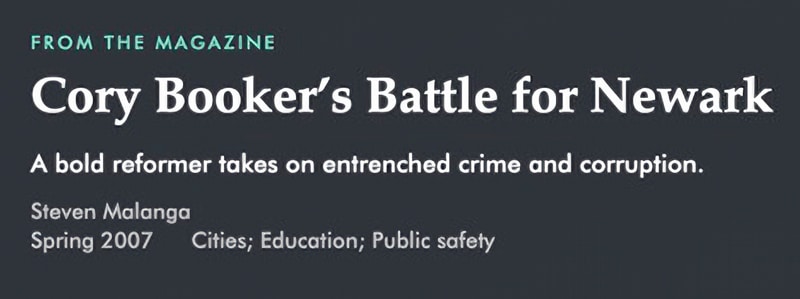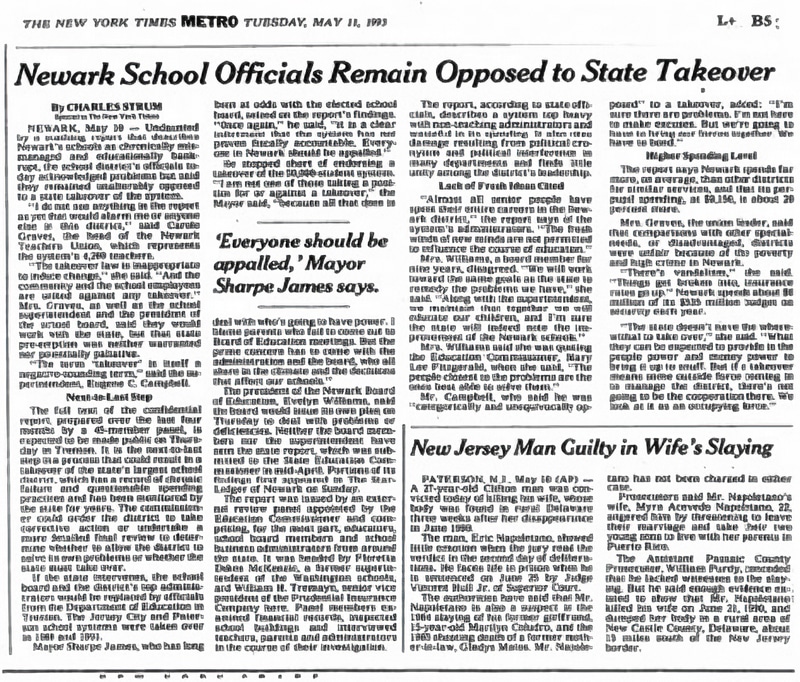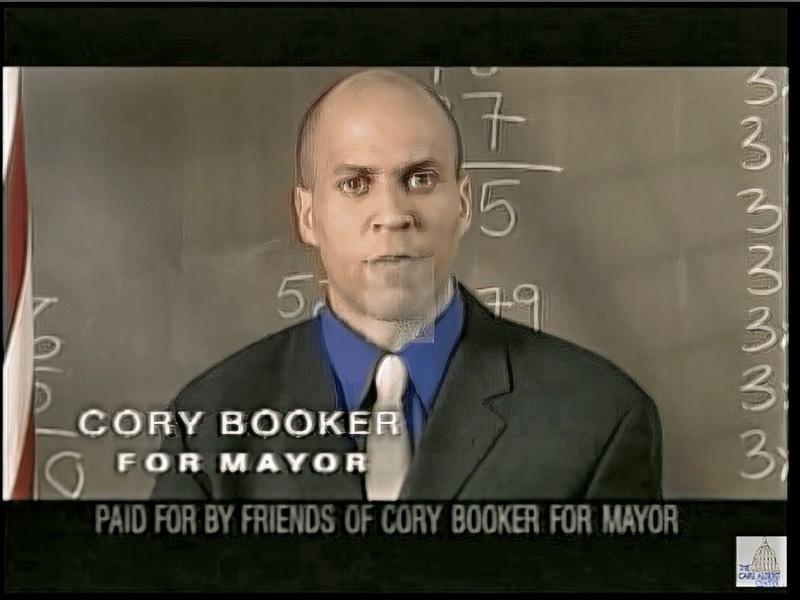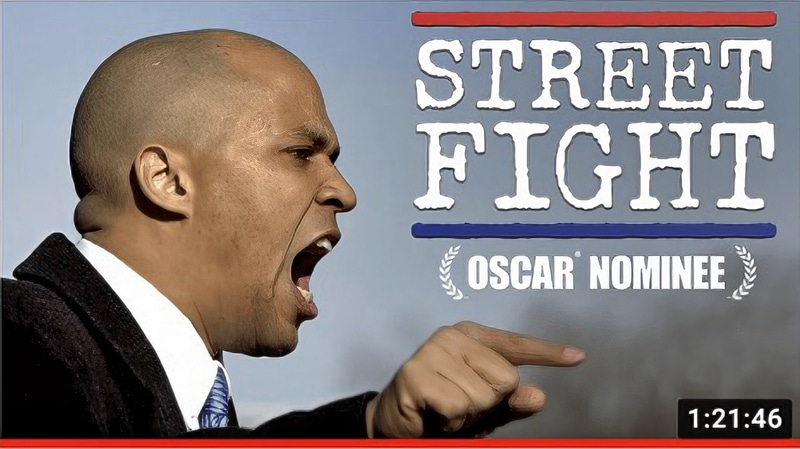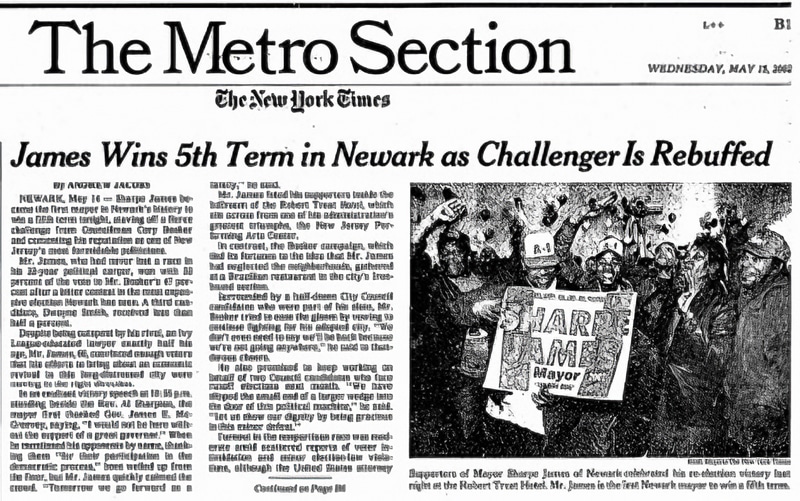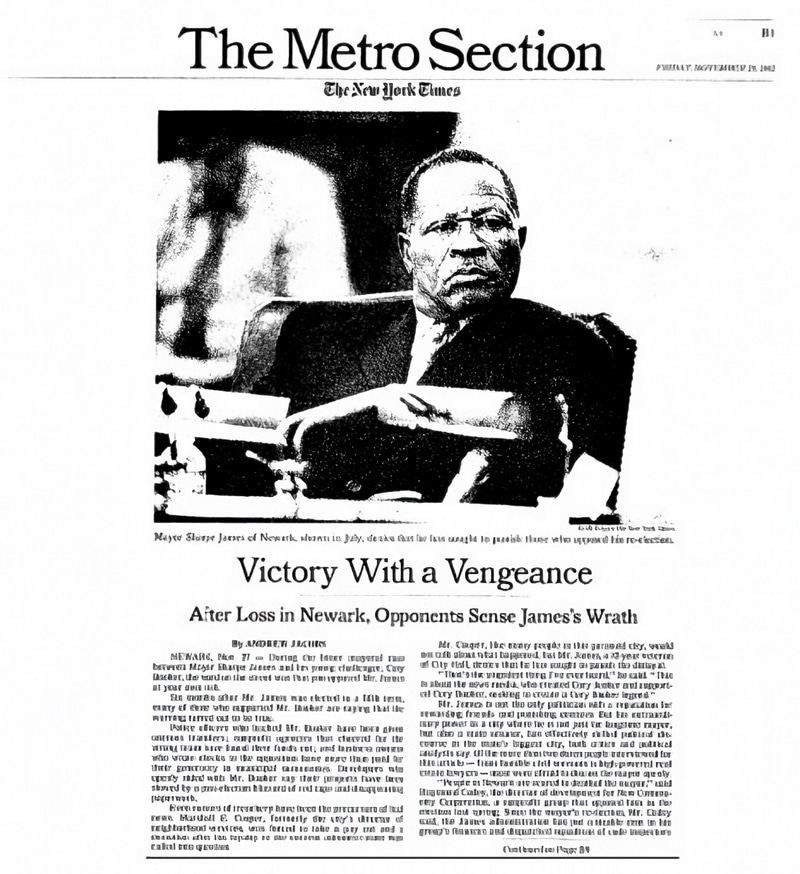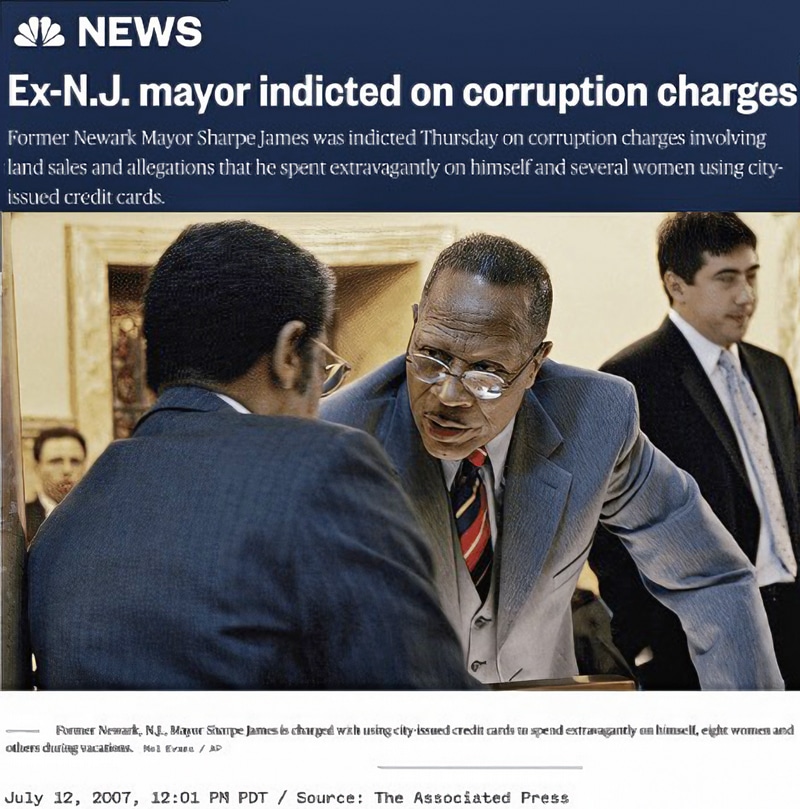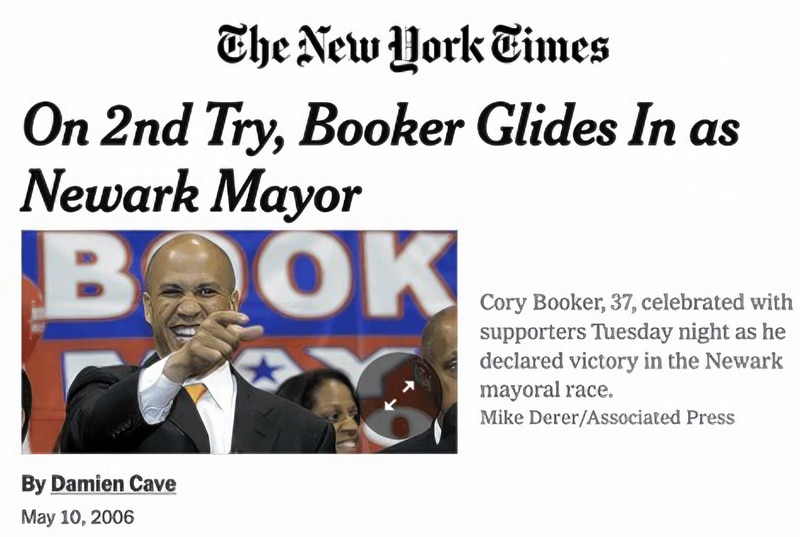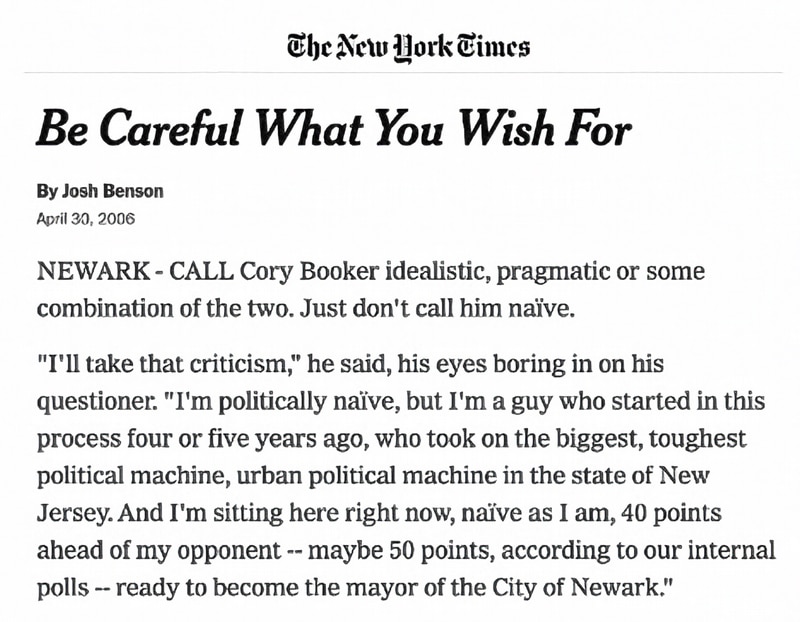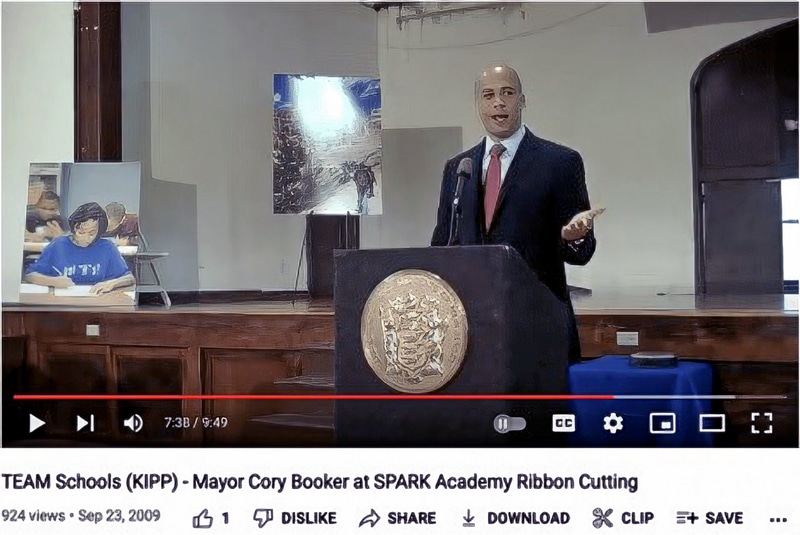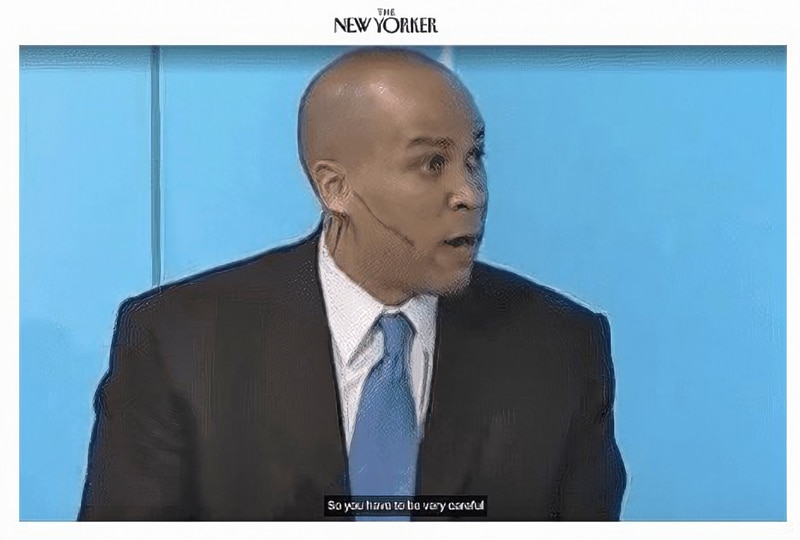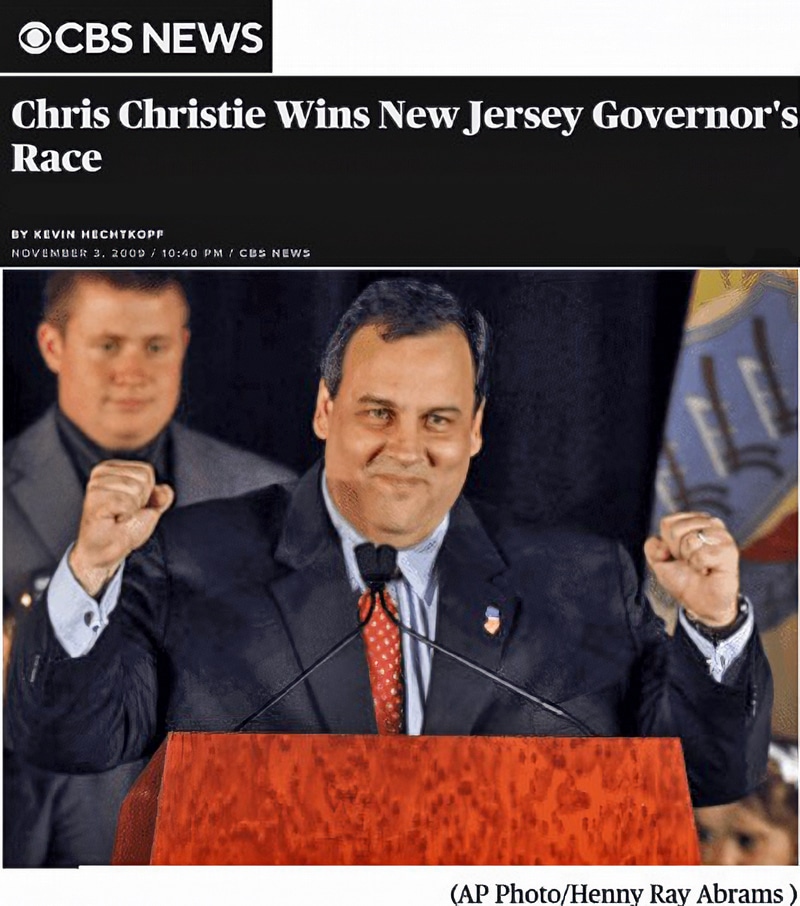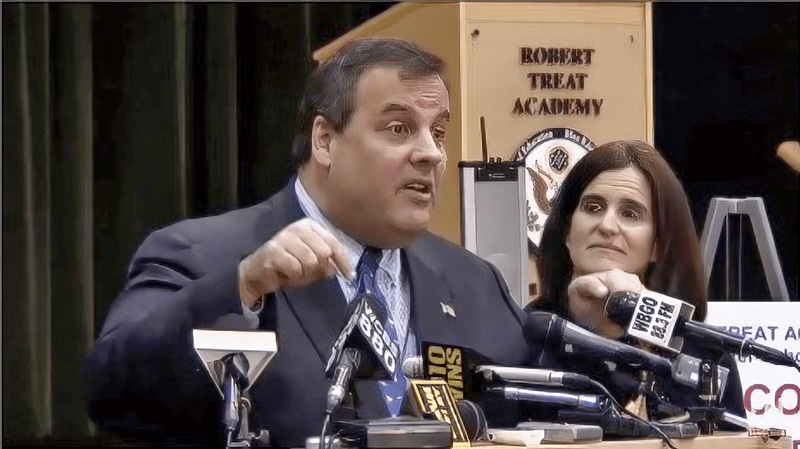Newark Chapter 4: Courageous New Leadership Comes to Newark Committed to Leveraging Success
Nearly simultaneous to the charter school presence beginning to be felt across the educational landscape in Newark, a new presence across the political landscape began to be felt as well.
In the spring of 1998, a time when Newark’s first charter schools were still in their first year of operation …
… Cory Booker won his first political race, becoming the City Council Member representing Newark’s Central Ward.
Booker had been raised 20 minutes north of the city in Harrington Park, and had returned to his roots after attending Stanford and Yale Law School and becoming a Rhodes Scholar. Among the problems he was most motivated to take on was the tragic state of Newark’s public schools. In 1998, while still in his first year in office, not only did Booker join the Board of Trustees of North Star Academy, but he co-founded E3 …
… a nonprofit organization committed to providing new educational options for students and families in Newark by attempting to advance policy ideas that many in Newark’s political establishment considered anathema.
The City Journal described the way Booker bucked political orthodoxy …
… in an article aptly titled “Cory Booker’s Battle for Newark”:
With South Jersey Republican businessman Peter Denton, Booker cofounded the education-reform group E3, which advocated bringing more schooling alternatives—from charter schools to vouchers—to struggling inner-city kids. “When I first met Cory, school choice was still very controversial in Newark,” says Denton. “In black communities, it was understood as something that white Republicans supported. But Cory understood its importance right away and was willing to advocate for it.” Booker was appalled to see many of Newark’s political leaders—“the connected, the elected, the elite,” he calls them—sending their kids to private schools but condemning poor children to remain in the terrible public schools.
Through his term as a City Councillor, Booker’s commitment to aggressive education reform only grew, ultimately contributing to his decision to run for Newark Mayor in 2002.
His opponent, the then-sitting mayor, Sharpe James, had been a strong opponent of the state’s takeover of Newark Public Schools …
… and had broadly aligned himself politically with the forces seeking to limit reform in the school district.
Booker made the need to improve public education one of the central messages of his campaign.
The 2002 Newark Mayor’s races went on to become a legendary election whose nastiness was captured in an award-nominated documentary.
Ultimately, James prevailed by 3,500 votes.
The Newark Teachers Union, The New York Times reported, was a central backer of the James’s campaign:
Mr. James spent part of his day campaigning with Mr. Sharpton, and stopped in at the headquarters of the Newark Teachers’ Union to thank a roomful of supporters who were making calls to voters. As the union president, Joseph Del Grosso, nodded in agreement, Mr. James called his opponent a Republican dressed as a Democrat, noting Mr. Booker’s past support for school vouchers.
After the election, despite the fact that many saw James attempting to exact retribution upon those who had supported his challenger …
… Booker and his supporters hung together and continued pressing for innovative reform of city services.
Three years later, under growing suspicion of corruption that would ultimately lead to his indictment and conviction …
… James announced his intention not to run for re-election.
It provided Booker with a clear path to victory for his next run.
During his 2006 campaign, as Josh Benson reported in The New York Times …
… Booker was every bit as strong for charter schools as he had been in 2002, if not more so.
On the subject of education, where Mr. Booker has courted controversy in the past by embracing taxpayer-financed private school vouchers, he said that he plans to broaden curriculums and after-school programs in public schools, expand existing charter schools and institute pre-apprentice programs to teach trades to students.
Within three years of taking office, Booker was publicly celebrating that Newark had developed the largest fund to grow successful charter schools as any city in the United States.
And he was challenging the Democratic Party establishment to rethink its position on charter schools.
We’re in a serious crisis right now. So you have to be very careful about what we as a Democratic party are wedded to when it comes to education. I look in Newark, New Jersey right now, and we have some of the highest performing inner city schools in the entire nation. Let’s just, you take one of them, which is a school called TEAM Academy, which is a KIPP school, and they’ve taken a very basic premise that we’ve all wedded to and flipped it on its head. The basic premise says that time is the constant in education. All kids go to school 180 days, same amount of days a week, same amount of hours a day, That’s a constant, and achievement is the variable. Well they’ve said that’s a silly way to wed our system. Let’s make achievement the constant and time the variable. And we’ll have kids go to school a longer school day. If they’re not performing, they’re coming in for Saturday classes. Going to school ten months a year or nine and a half months a year is not enough. We’re gonna have another month into the summer. And TEAM Academy in Newark, New Jersey, and North Star Academy which is another one, had every single one of their kids go to college, and they’re not creaming. And when that charter school started, the average kid was three grade levels behind district average. It can be done. Every child is born with divinity and genius in their heart. So if this is working, why are we not doing things differently?
It was the kind of novel thinking outside of political ideology that poised Newark’s chartering movement for even greater impact in its second decade.
Because in 2009 a new governor was coming into office.
A governor whose very first public appearance as governor-elect was a visit to Robert Treat Academy …
… where he praised the school for the example it was offering to all of public education.
This is a model that we should replicate all over the State of New Jersey. Everywhere. And there is no reason that it cannot be replicated. You know that’s been my frustration over time with the educational bureaucracy in this state. It is not as if we’re walking around in the dark room, and we said I wish we could just find the light switch. The light switch is on. It’s here!
It was the very same school that Mayor Booker had highlighted in his State of the City speech just nine months before with dozens of students and staff from the school as invited guests in attendance.
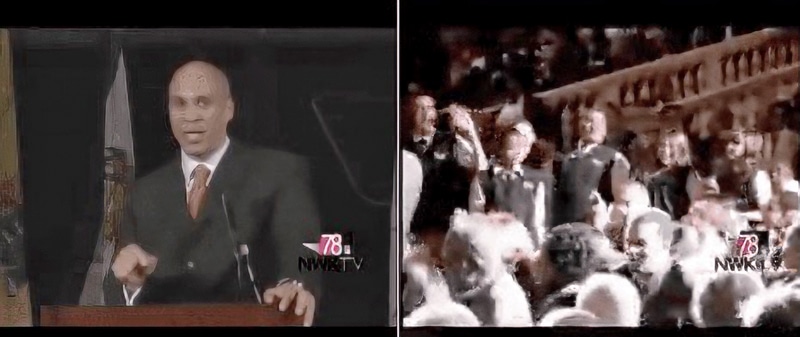
These schools have shown us that every child in Newark can learn. But not only learn, but they can set the national model for success in our country. This is our vision. This is where we’re going. And together with this municipal council, we will do everything in our power to foster this reality.
Across the range of issues that Mayor Booker and Governor Christie would confront in the years ahead, many would be ones where they would not see eye to eye.
But on one thing they were in complete agreement:
The charter schools of Newark were succeeding greatly and needed to be grown as quickly as possible so that even more students and families could be better served.
